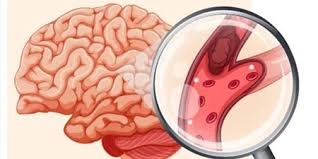
Stroke Recovery: How to Minimize Complications After the Attack – With Dr. Hesham El-Hanawy
Published on: 2025-06-26 | Written by: Dr. Hesham Al-Hanawi, Senior Consultant
Stroke is a medical emergency that requires rapid and accurate intervention to reduce long-term damage and improve recovery outcomes.
Dr. Hesham El-Hanawy, a specialist in neurology and brain diseases, explains that early diagnosis and immediate care are crucial for preserving functions like movement, speech, and memory.
What Is a Stroke and What Causes It?
A stroke occurs when blood flow to a part of the brain is interrupted—either due to a blocked artery (ischemic stroke) or bleeding in the brain (hemorrhagic stroke).
Dr. Hesham El-Hanawy notes that high blood pressure, diabetes, smoking, and high cholesterol are among the main risk factors that increase stroke incidence.
Key Warning Signs That Require Emergency Attention
Dr. Hesham El-Hanawy emphasizes that you should seek emergency care immediately if you notice:
-
Sudden weakness or numbness in the face, arm, or leg, especially on one side
-
Difficulty speaking or understanding speech
-
Severe, sudden headache with no clear cause
-
Loss of balance or sudden dizziness
-
Blurred or lost vision in one or both eyes
How Can Stroke Complications Be Minimized?
Dr. Hesham El-Hanawy outlines a comprehensive treatment plan that includes:
-
Rapid medical intervention within the first few hours (the golden window)
-
Thrombolytic medications or endovascular therapy to dissolve clots in ischemic strokes
-
Physical and speech rehabilitation to regain lost function
-
Managing underlying conditions like hypertension and diabetes to prevent recurrence
-
Psychological support for patients and their families during recovery
Conclusion
A stroke doesn’t have to mean the end of independence—it can be the start of recovery with the right medical response. Thanks to the expertise of Dr. Hesham El-Hanawy in managing critical stroke cases, patients have a real chance of minimizing complications and restoring quality of life when care is delivered promptly and effectively.

